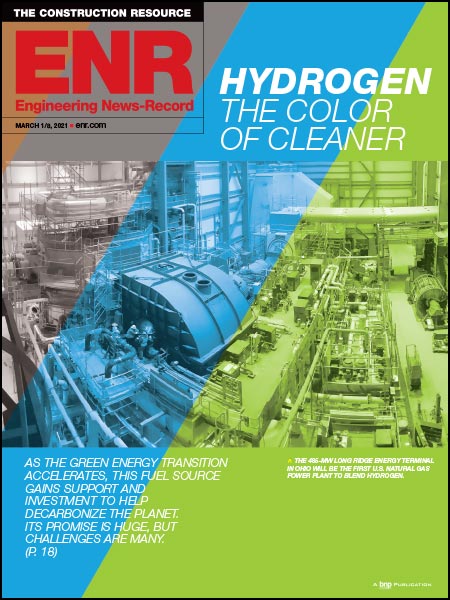 | Senate energy chairman sees panels 20-1 vote as "a rather formidable step forward." Changes may come on the floor. Tougher challenges will come in negotiations with the House. A key issue there is whether to provide liability relief to producers of MTBE. |
| Domenici |
Lawmakers and lobbyists are preparing for Senate floor debate in June on a major energy package. The bill, which the Energy and Natural Resources Committee cleared May 26, aims to spur oil and gas production, nuclear power and conservation, and bolster the electricity grid.
The panels 20-1 approval "is a rather formidable step forward." says Chairman Pete Domenici (R-N.M.). President Bush wants a bill on his desk this summer. "Were hopeful that by August we might have an energy policy that could endure for a number of years," says Kim Mastalio, president of Black & Veatchs strategic sales and marketing division.
But the path ahead wont be a cakewalk. "They put a lot of the difficult issues and the complex issues off to the floor," says energy lobbyist Frank Maisano. "There may be significant changes." Even tougher will be a deal with the House, which in April passed a bill with big differences.
The touchiest issue may be liability relief for makers of gasoline additive methyl tertiary butyl ether. The House has MTBE protections; the Senate panel does not. Domenici says all parties know MTBE is "a real stumbling block" to a deal, but he sees "some ideas, some parameters" emerging to deal with the issue.
Conservation advocates were disappointed the committee did not tighten vehicle fuel economy, but prefer its bill to the Houses. "Its not a home run, but at least were on base," says Ronnie J. Kweller, Alliance to Save Energy spokeswoman.
To deter blackouts, the committee sets mandatory electricity-reliability regulations. It repeals the 1935 Public Utility Holding Company Act, which would attract new investors for transmission projects, says Mastalio. "I think this opens the door."
But the apparent tradeoff for PUHCA was wider Federal Energy Regulatory Commission authority to review sales of generating facilities and mergers involving gas utilities. The provisions "probably go a little bit too far and are a little bit overly intrusive to operation," says Jim Owen, Edison Electric Institute spokesman. "Were hoping that we can get some of those provisions modified either on the floor or in conference."
Farm staters like the panels 8-billion-gallon standard for ethanol and other renewable fuels by 2012. Sen. Tim Johnson (D-S.D.). calls it "robust but very doable." The House calls for 5 billion gallons.
To promote nuclear power, the committee authorizes a new test reactor at the Idaho National Laboratory and has loan guarantees for new nuclear and other "clean energy" plants. It extends Price-Anderson Act indemnification for Energy Dept. contractors and Nuclear Regulatory Commission licensees through 2016. The House carries Price-Anderson protection through 2025.
| Mead says seven new runways and one extension, totaling an estimated $4.7 billion, are slated to open by the end of 2008. But only threeAtlanta, Boston and Philadelphiaare at airports among the 15 most congested in first quarter 2005. The other runway projects under way are Charlotte, Cincinnati, Minneapolis-St. Paul, St. Louis and Seattle.
Legislation to create a $140-billion private trust fund to compensate asbestos victims surmounted a major hurdle May 26 when the Senate Judiciary Committee voted 13-5 to approve the measure. Lawmakers have been trying unsuccessfully for years to find an alternative to asbestos litigation. But parties involved, including insurers and organized labor, claim that the bill still needs work. The American Insurance Association wants more protection from the tort system, especially if the fund runs out of money and victims return to the courts. The AFL-CIO has raised many concerns, including how the fund will be set up and operated. No bill will be perfect, says Terry Lynch, legislative director of the asbestos workers union. But he thinks a final deal can be reached. Says Lynch: "I think it is doable." Skinner, a former Illinois environmental commissioner and EPA regional official, has been acting assistant administrator of the agencys Office of Enforcement and Compliance Assurance since September 2004. |



Post a comment to this article
Report Abusive Comment